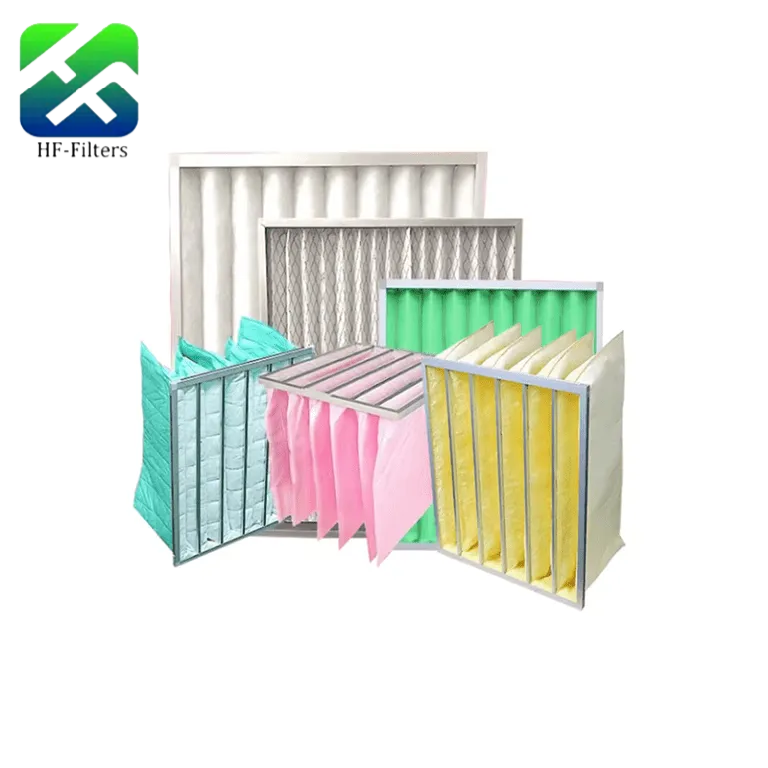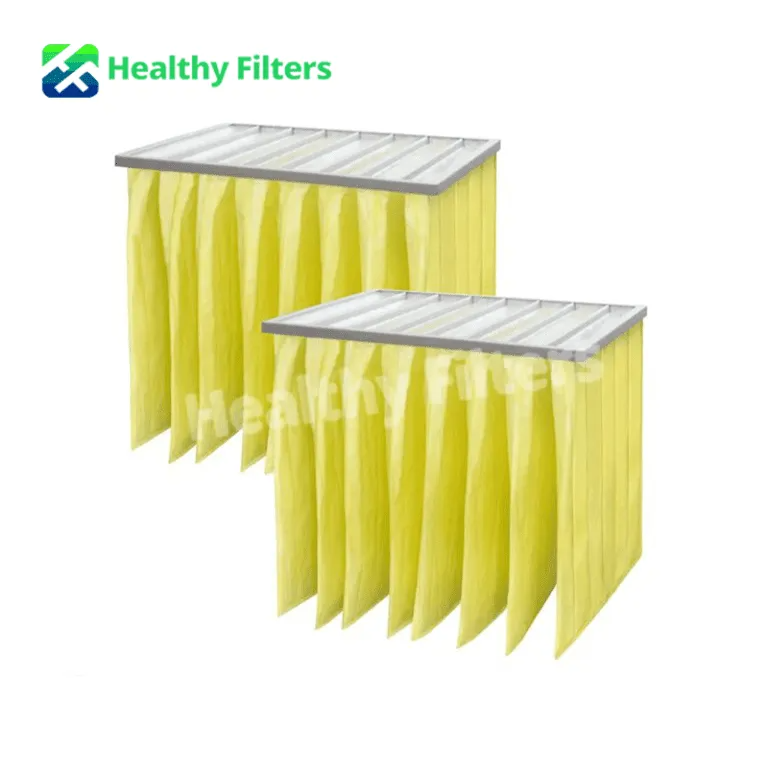A safe and efficient HVAC system always depends on the condition of its air filters. When filters clog, the system loses balance, consumes more power, and may even risk breakdown. Many facility managers only notice issues once energy bills climb or indoor comfort drops. By then, damage may already be done. That is why filter care is not just a technical duty; it is a safety and cost matter. One company that has built its reputation around practical solutions in this field is Healthy Filters. With years of experience in filtration materials and finished filters, the company offers products that cover residential, commercial, and heavy industrial applications. From tailored solutions to global distribution networks, its focus remains on air quality and HVAC reliability. Their products are already used in more than 40 countries, backed by ISO9001 and CE certifications.

Why Does a Dirty Air Filter Threaten HVAC Safety?
If the filter in your HVAC system is left unattended, it does not take long before the impact spreads across airflow, temperature control, and even fire safety. Dust buildup narrows passages, creating pressure that makes the fan run hotter. It is a silent problem because you may not notice it during daily use until a sudden failure occurs.
Reduced Airflow and Overheating Risks
Once airflow is restricted, fans strain to pull air through layers of dust. Motors heat up, and coils cannot cool evenly. In factories, this has led to equipment shutdowns during summer peaks. A medium efficiency bag pocket filter F5-F9 is designed to hold large amounts of dust without causing excessive pressure drop, reducing such risks.

Increased Energy Consumption and Costs
Energy use often spikes by 15% or more when filters are dirty. That increase directly shows up in monthly bills. Synthetic pocket filter media rolls, especially those in the F5-F8 range, offer consistent airflow and reduce the load on HVAC motors, keeping power use steadier.
Indoor Air Quality and Health Concerns
When filters fail, contaminants slip indoors. Allergens, fine dust, and even fibers circulate back into rooms. Workers may report irritation or fatigue. Facilities that rely on clean environments, such as clinics or electronics plants, cannot afford this.
What Are the Most Noticeable Physical Signs of a Dirty Air Filter?
Before technical tools point it out, you can often see or smell the warning. A quick look during scheduled maintenance can save thousands in repairs later.
Visible Dust and Dirt Accumulation
If the filter surface looks thick with gray layers, it is no longer working efficiently. This is often obvious on bag filters, where pockets sag under the dust weight.
Unpleasant Odors from Air Vents
Musty or burnt smells coming through ducts usually signal trapped particles beginning to decompose or overheat. This smell is one of the easiest signs you should never overlook.
Darkened or Discolored Filter Media
Media that turns dark shows long exposure to pollution. A synthetic F5-F8 pocket filter media roll is made to resist early discoloration and can carry heavy loads of dust before replacement becomes urgent.

How Does Poor Airflow Reveal Filter Problems?
Airflow tells the story of filter health. If you walk from one room to another and feel a shift in temperature or strength of air, chances are the filter is already clogged.
Uneven Heating or Cooling in Rooms
One side of a building may feel cool while the other stays warm. Dirty filters often create these uneven patterns because the system cannot distribute conditioned air evenly.
Weak Air Pressure from HVAC Vents
Hold your hand to a vent. If air feels weaker than usual, clogged media is a likely cause. This not only reduces comfort but also forces the fan to run longer.
Frequent HVAC System Cycling
Short cycling—when the system turns on and off more often—wastes energy and wears out parts. Clean filters keep cycles steady, extending the lifespan of HVAC units.
What Strange Noises Indicate a Dirty or Clogged Filter?
Noise is a subtle but reliable sign. Machines rarely complain unless something is wrong, and filters play their part in this too.
Whistling Sounds from Blocked Airflow
Air searching for gaps through clogged filters can whistle, a sound often mistaken for duct leaks.
HVAC Fan Overworking Noise
Fans that hum louder than usual may be overcompensating for blocked paths. Over time, this stress shortens motor life.
Vibrations or Mechanical Strain
Filters that bend under dust load create turbulence. That turbulence translates into rattles and vibrations inside ducts.
How Do Rising Energy Bills Signal a Filter Issue?
Not all signs are visible or audible. Some only show in numbers on your utility statement. If your bills climb while usage patterns stay the same, dirty filters may be the reason.
Unexplained Monthly Utility Increases
When HVAC units pull harder to push air through clogged media, energy spikes even if schedules remain steady.
Higher Maintenance and Repair Costs
A clogged filter can force emergency repairs of fans, belts, or compressors. Replacing filters on time is cheaper than replacing equipment.
Decreased System Lifespan
If strain becomes constant, the entire HVAC system may need replacement years earlier than planned. That is a heavy cost most businesses want to avoid.
When Should You Replace Your HVAC Air Filter?
Replacement timing depends on location, dust levels, and usage hours. One office may run smoothly for three months, while a nearby workshop may need new filters every month.
Manufacturer’s Recommended Timeframes
Most HVAC systems specify replacement intervals in manuals. Ignoring these guidelines increases risk.
Seasonal or Usage-Based Intervals
Changing filters before peak seasons such as summer or winter prevents strain during the busiest months.
Customized Replacement Schedules for Industrial Needs
Some facilities need tailored schedules. Medium efficiency pocket filters F5-F9 are designed for high-dust industrial spaces, where regular changes are not optional but part of safety planning.
How Can Healthy Filters Products Improve HVAC Safety?
Filter technology has advanced in both media composition and design. Using the right products gives you more than clean air; it reduces hidden costs and system stress.
Advanced Synthetic Filter Media
Synthetic rolls in the F5-F8 class resist moisture and provide steady filtration performance, which is essential in humid or polluted environments.
Tailored Solutions for Commercial and Industrial HVAC
Industrial bag filters F5-F9 are custom built to manage larger volumes of air and dust. They hold their shape even in high-flow systems, supporting stable performance.
Certified Quality and Global Supply Network
With certifications like ISO9001 and CE, the products meet international standards. Supply chains reach Europe, North America, and Southeast Asia, so you can source filters quickly without long waits.
FAQ
Q1: What happens if filters are not replaced on time?
A: Systems overheat, energy use rises, and indoor air quality drops. In severe cases, equipment fails early.
Q2: Can synthetic filter media rolls be cut to size?
A: Yes, rolls are flexible and can be cut to fit different housings, making them useful for varied HVAC systems.
Q3: Do medium efficiency pocket filters work in cleanroom environments?
A: Yes, F5-F9 bag filters are designed for environments that demand stable airflow and consistent filtration.





